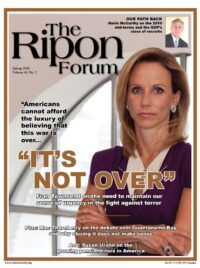
We have looked at the state of small business in our union, and it is not good.
Our Small Business Economic Trends monthly report, which has tracked small business conditions for more than 35 years, shows that small business owners nationwide are struggling to keep their doors open. Optimism among small business owners declined in the latest report as small business owners experienced weak sales and negative earnings.
To put the current conditions in perspective, the numbers we’re seeing now are lower than they were in the 1981-82 recession, and have been that way for far longer.
So is it a great time to start a business?
According to the Ewing Marion Kauffman Foundation, more than half of the companies on the 2009 Fortune 500 list were launched during a recession or bear market, along with nearly half of the firms on the 2008 Inc. list of America’s fastest-growing companies. If the government would like to ensure that this trend continues, and to help existing businesses recover and grow again, there are some things policymakers should remember.
First, recognize the problem. Second, do no harm.
…more than half of the companies on the 2009 Fortune 500 list were launched during a recession or bear market, along with nearly half of the firms on the 2008 Inc. list of America’s fastest-growing companies.
This recession has severely limited small business’ ability to generate jobs as poor sales depress balance sheets, banks are reluctant to lend, and confidence remains negative due not only to the lack of visible economic progress, but also to a series of policy threats that darken the horizon.
That horizon is filled with unknowns, from the true costs of recently passed health care legislation to cap and trade, from soaring deficits to the need to come to grips with them, from paid family and medical leave to card-check legislation, from expiration of the 2001 and 2003 tax cuts to state decisions about their finances.
Policymakers can’t expect small business owners, facing difficult economic circumstances anyway, to commit themselves to investing in new employees or equipment without acknowledging and revealing the policy-inspired costs that will be imposed on them.
With that in mind, Washington should send an immediate signal to small business owners that their taxes won’t be raised. About 75 percent of small business owners are pass-through businesses and pay their business tax at the individual level, so with the 2001 rates sets to expire they’re facing a tax increase if Congress fails to act. If a business is struggling to make ends meet, why would Washington take any money out of those businesses at the same time they’re asking them to hire new workers?
…Washington should send an immediate signal to small business owners that their taxes won’t be raised.
The current tax rates should be kept in place for all small businesses. However, some propose raising taxes on those businesses that report more than $250,000 in income. An NFIB Research Foundation poll, combined with U.S. Census Bureau statistics, indicates that the businesses most likely to face tax increases are businesses that account for a substantial portion of the workforce.
The NFIB survey shows that about 10 percent of all small business owners report more than $250,000. Furthermore, the businesses most likely to pay more taxes are firms with 20 to 250 employees. In fact, more than 30 percent of firms with between 20 to 250 employees would see their taxes increase if the $250,000 threshold expires.
Regardless of how many small businesses would be impacted by this tax increase, simply drawing a line in the sand at $250,000 is a blunt instrument, meaning that some small business owners will see their taxes increase. When state and local tax rates – many of which are also going up – are included, plus new taxes added in the healthcare reform law, these entrepreneurs could see their tax rates climbing above 50 percent.
In addition, Congress should also extend the lower capital gains tax rate passed in 2003. If a business has to sell an asset, now is not a good time to increase the tax paid on the disposition of that asset. Keeping the rate lower should also be an incentive to invest in capital assets with the certainty that any gain later realized on that investment will be subject to a lower tax rate.
Remember, the vast majority of small business owners pay their taxes at the individual level, so allowing the 2001 and 2003 lower tax rates to stay in place will benefit those businesses. It will also give them some sense of certainty they can depend on as they make critical decisions about expanding their business.
Two more targeted policies would encourage the formation of new firms. One easy fix would be to simplify the home office deduction, offering a flat rate instead of the current complex calculations that lead many entrepreneurs to skip the whole idea.
Another important step would be to liberalize the tax write-offs a new business can claim in its first year. Current tax policy allows an immediate $5,000 deduction for investments in a new business with additional expenses written off in subsequent years, reducing liquidity and cash flow, and effectively demanding greater initial investment. The proposed increase to $20,000 in deductible start-up costs is a start.
Uncertainty about policy changes that will increase business costs is a growing concern among small business owners struggling through a tough economic climate.
Uncertainty about policy changes that will increase business costs is a growing concern among small business owners struggling through a tough economic climate. Seventy-five percent of small business owners think that now is not a good time to expand their business. And when asked what is the most important reason influencing their plans for expansion, political climate ranks second with only economic conditions receiving more votes.
That uncertainty over how numerous legislative initiatives from Washington will impact the cost of running a business is causing too many small business owners to conclude that they just can’t afford to take the risk to expand their business or hire new employees. If elected leaders want small business owners to resume their traditional role as our nation’s job creators, they must realize that this uncertainty is impeding job growth.
If the Administration and Congress truly want to help put small businesses, they should alleviate small business owners’ fears over taxes, as well as job-threatening cap and trade and card-check legislation, which should be eliminated from Washington’s domestic agenda.
Only by creating a climate in which entrepreneurs have confidence in our country’s direction will we be able to turn this economy back on the path to growth and prosperity.
Dan Danner is President and CEO of the National Federation of Independent Business in Washington, D.C.




